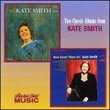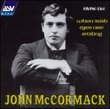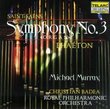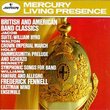| All Artists: Dmitry Shostakovich, Emanuel Ax Title: Shostakovich: Trio, Op.67/Sonata, Op.40 Members Wishing: 0 Total Copies: 0 Label: Sony Release Date: 10/25/1990 Genre: Classical Styles: Chamber Music, Historical Periods, Classical (c.1770-1830), Instruments, Strings Number of Discs: 1 SwapaCD Credits: 1 UPC: 074644466423 |
Search - Dmitry Shostakovich, Emanuel Ax :: Shostakovich: Trio, Op.67/Sonata, Op.40
 | Dmitry Shostakovich, Emanuel Ax Shostakovich: Trio, Op.67/Sonata, Op.40 Genre: Classical
Shostakovich's Trio No. 2 is a grim masterpiece, a disguised tribute to the Jewish victims of the Holocaust written during World War II and actually using Jewish folk themes. The Cello Sonata was written a decade earlier... more » |
Larger Image |
CD DetailsSynopsis
Amazon.com Shostakovich's Trio No. 2 is a grim masterpiece, a disguised tribute to the Jewish victims of the Holocaust written during World War II and actually using Jewish folk themes. The Cello Sonata was written a decade earlier, but it has its own dark political shadows of Stalinism. So don't buy this disc for fun and games. But do buy it for a couple of 20th-century masterpieces, played by a trio of well-known musicians who perform the music with great dedication. If you can put up with old sound, you can hear both of these pieces played by the composer (the Sonata on MultiSonic 31 0179, the Trio on Doremi DHR 7701). --Leslie Gerber Similar CDsSimilarly Requested CDs
|
CD ReviewsTrio for Many Kompositor | Spokane | 07/28/2000 (5 out of 5 stars) "DDS originally composed this work (Trio #2. Trio #1 was composed years earlier for DDS's fiancee at the time) for his dear friend, musicologist/composer Ivan Sollertinsky, who had recently passed away. By the time of composition, DDS had reached the height of his frustration with Stalin and the policies thereof, including the rampant anti-Semitism among the Supreme Soviet and followers. He was also well aware of the existence of Nazi war crimes. The Trio is thus a three-fold honorarium. This recording, after studying two others (including the Emerson's) is by far the superior version and is highly recommended. Yo-Yo Ma is certainly the greatest cellist alive; his admirable handling of the more than difficult opening strains in harmonics sends shivers down my spine. The theme is performed as if a small child is crying in the darkened fog, or one may imagine the smoke rising from the ovens at Dachau. Stern's masterful control of the false harmonics within the eerie coda to Mvmnt 1 (A-G-G-F#-F#-E repeated one octave lower each time) adds to the lonely chill of the piece. The trio is rounded off by Emmanuel Ax's perfected pulsing when these sequences occur. His management of dynamics surpasses all other recordings I have heard. Bear in mind, the 4th Mvmnt contains themes from tradtional Jewish folk songs, but twisted enough to sound like concentration camp victims marching to their deaths, and the Nazis dancing about the mass graves. Please ensure you are not in a depressed state of mind when you actively listen to this CD, as the Cello Sonata is nearly as disturbing as the Trio. One interesting note: DDS uses a theme from Trio #2 in his Eighth String Quartet (1960), along with recognizable themes from several other works, including his infamous D-S-C-H (D-Eb-C-B) signature." Great Music. Other venues available. D. B. Rathbun | Washington, DC United States | 06/20/2000 (5 out of 5 stars) "The virtue of this disc is the combination of two of Shostakovich's finest works. Recordings of the cello sonata hard to find, and Ma's is easily the best. Harrell, with Ashkenazy, plays with more color and depth, but Ma's precision and beauty are inimitable. This rendition of the trio is very nice, but I must admit I prefer another. Argerich, Kremer, and Maisky released a live performance of the trio in 1999 that will certainly go down as a legendary performance. This performance is not only Shostakovich played at its best, it is MUSIC played at its best. AK&M couple this with Tchaikovsky's op. 50 trio, also an amazing performance and also some of the best music out there, and they encore with Kiesewetter's Tango Pathetique, perhaps the only place you will ever hear this piece for a while. My recommendation: buy both." Incredible D. Pasture | New York, NY USA | 04/10/2004 (5 out of 5 stars) "In response to reviewer m_a_portnoi, I would disagree with his assessment that the trio features no 'nervous tension'. The final movement, in particular, is full of raging bitterness and a terrifying insanity. Stern and Ma frequently sound as if they are tearing into their insturments, and are driven mad with an internalized hate. I remember hearing the "Largo" and "Allegretto" on the radio when I was 12 and being completely blown apart by its power, feeling like I was hearing some furious, spiritualized madness, and looking for a copy for months. This was the one I purchased, and I still believe that it is one of the greatest music recordings in my collection, and without a doubt among the best I've heard, of any genre. Yes, the performance is a little less 'on edge' and 'nervous' than the traditional Shostakovich arrangements and conductions, but I believe that this is a testament to his power as a composer, to allow for such a different kind of beauty to come out in his work - the lushness and thick, slow craziness of the "Largo" is a great example of this. All Shostakovich compositons are beautiful, whether or not they are 'ugly' or 'tense', and these three performers really bring out a softer, but no less horrifying and spiritually disturbing, texture to the work; through them the music becomes ultimately uplifting and deeper in its meaning. Though, I believe one can never really go wrong with any Shostakovich work.I could go on and on about how marvelous this record is. If you're considering it, do give it a try. Yes, its beautiful, but since when is that bad? Even beauty has depth to it."
|

 Track Listings (8) - Disc #1
Track Listings (8) - Disc #1








